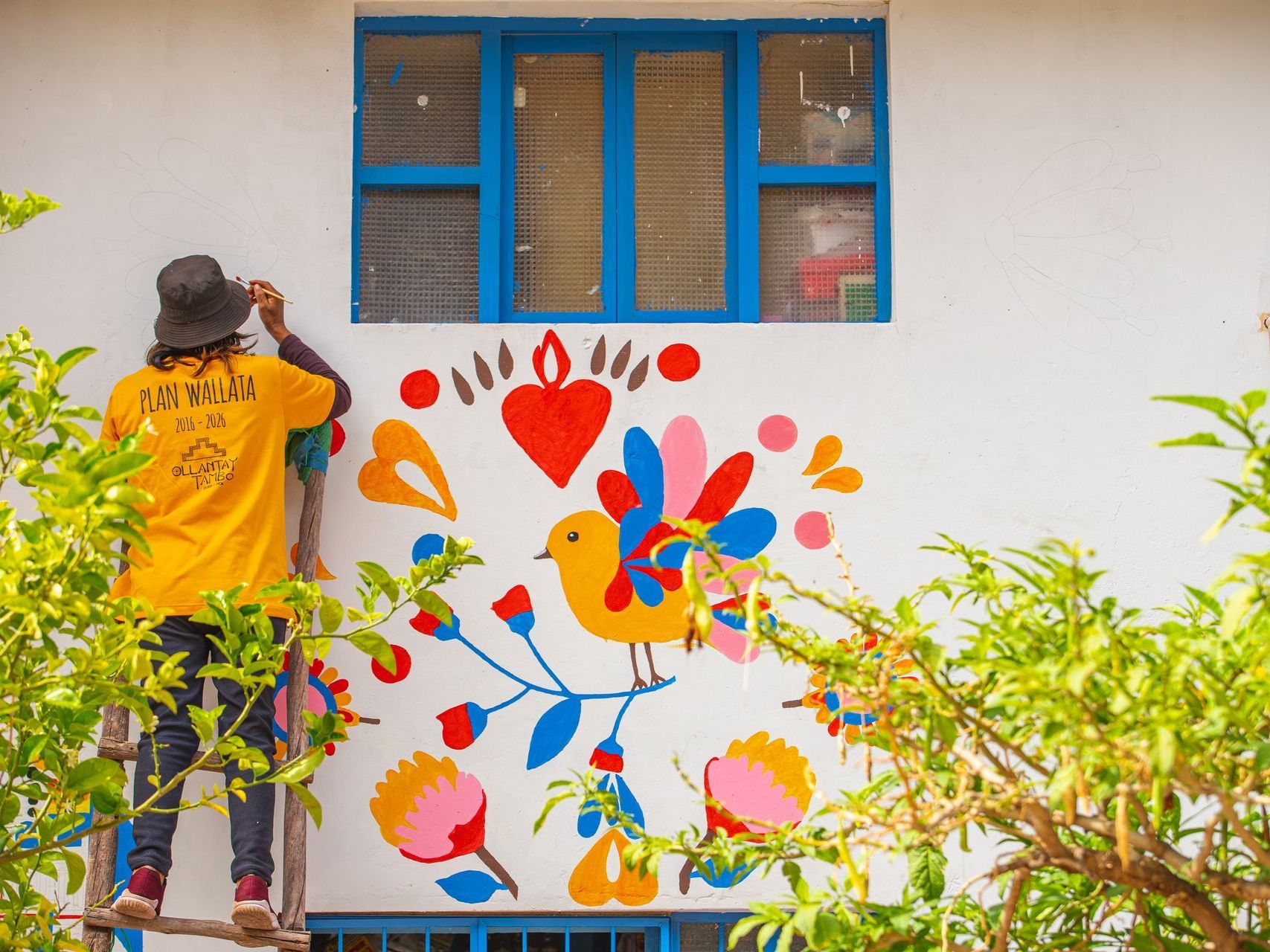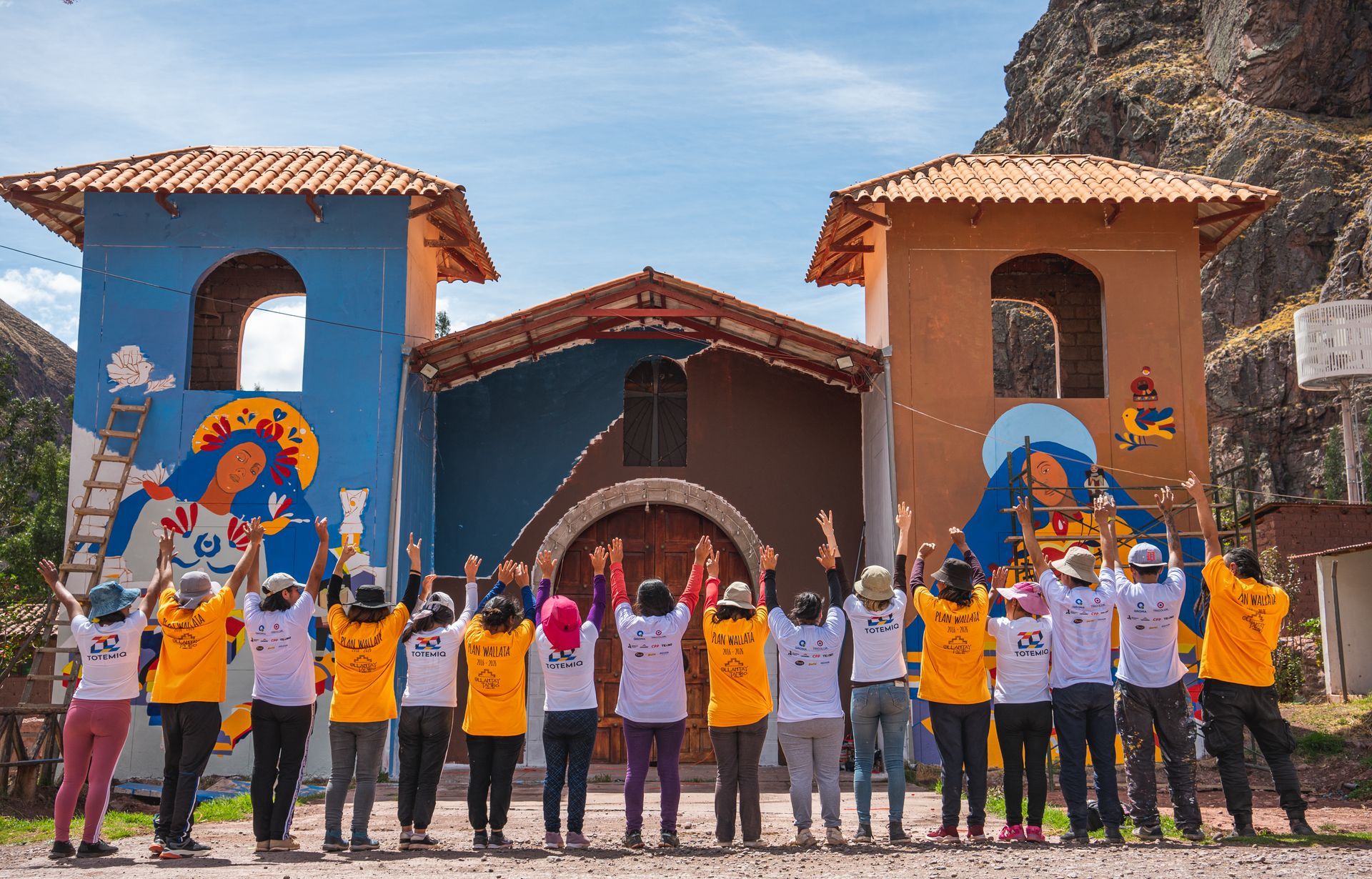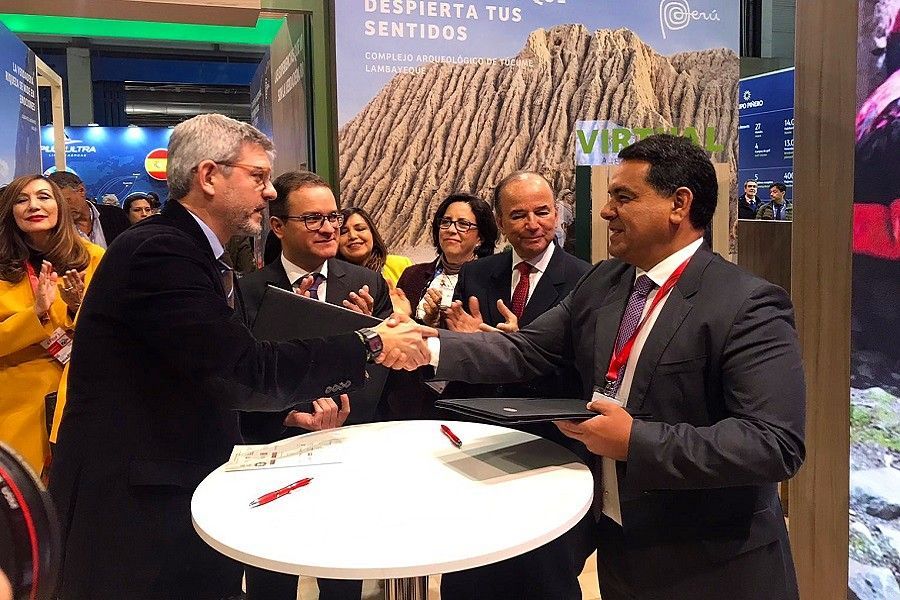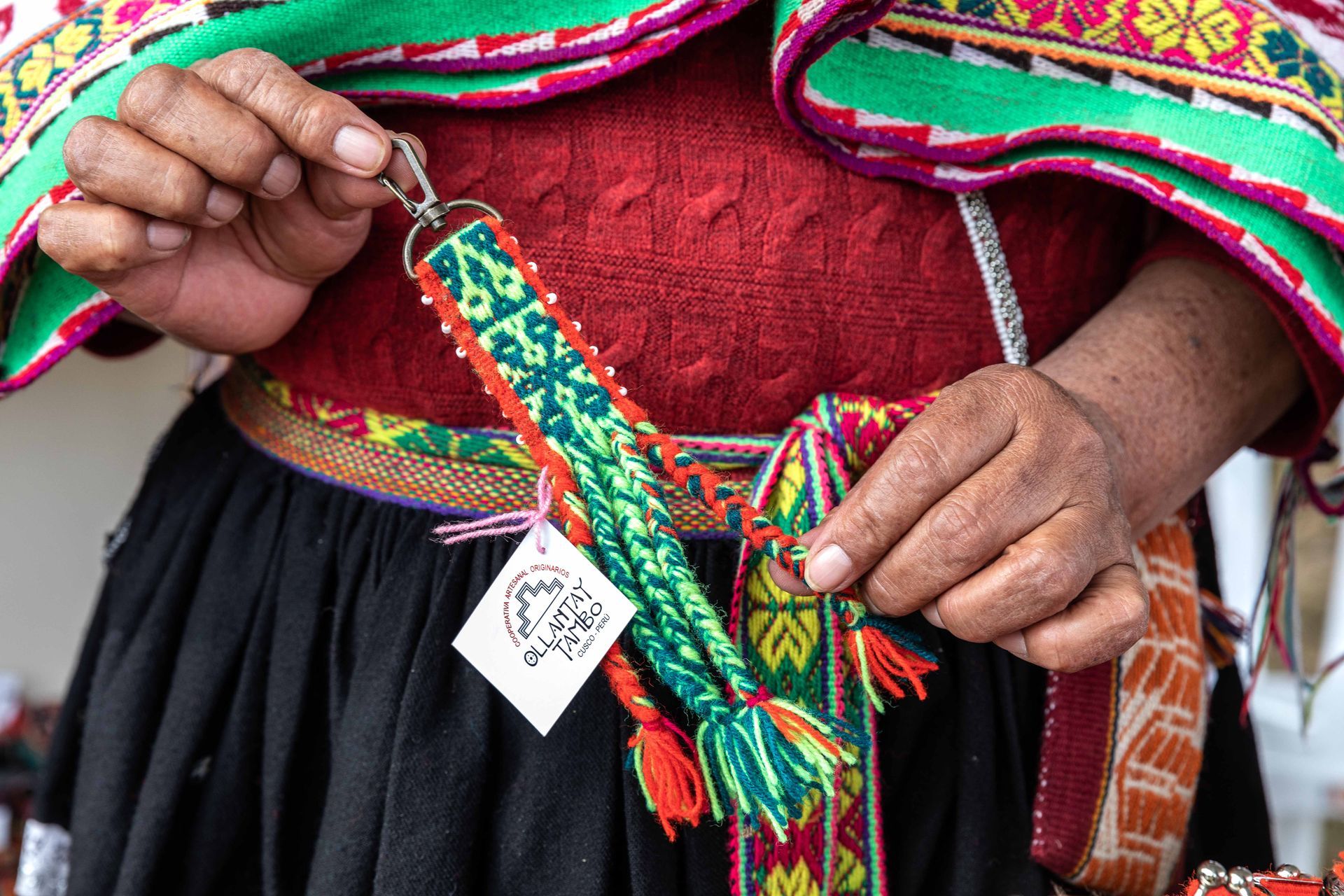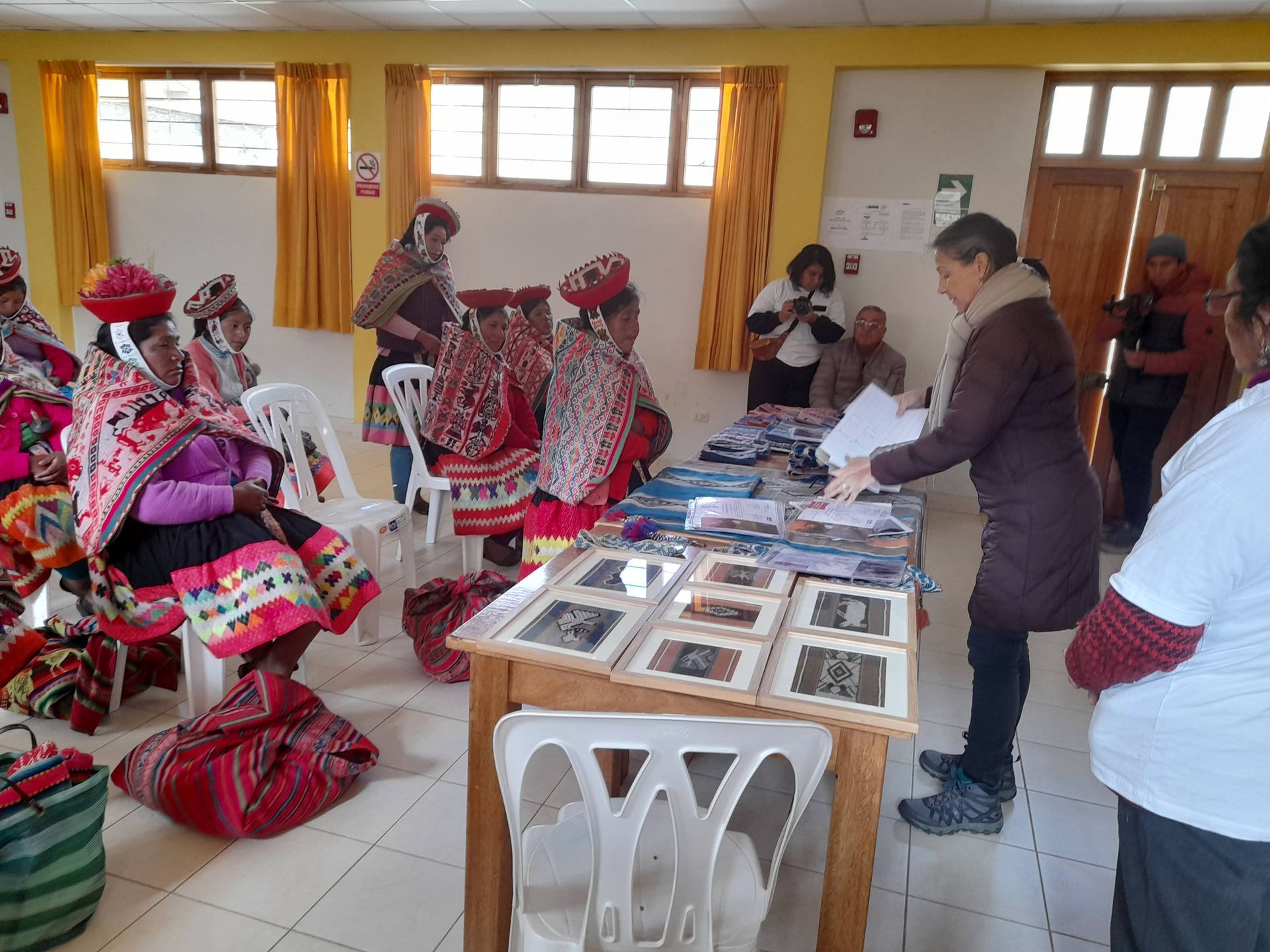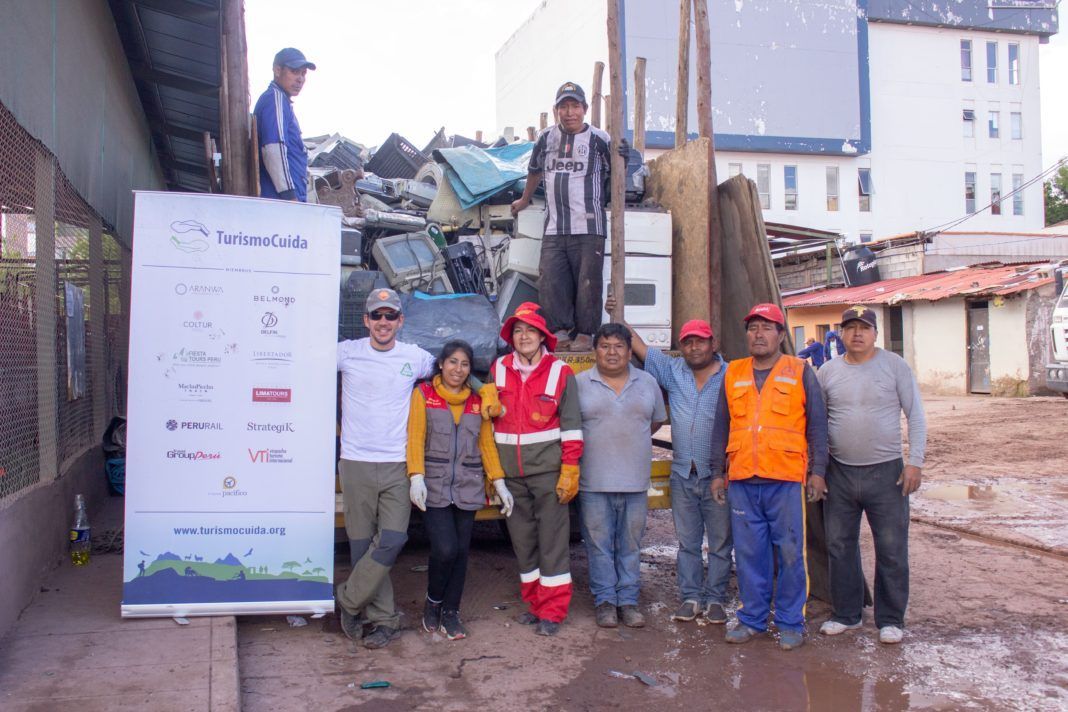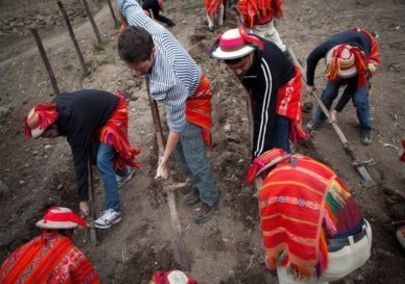In May 2012, the non-profit civil association
Turismo Cuida was established. This initiative was started by a great friend, Carlos Alberto Arrarte, who during his lifetime wanted to contribute to a joint effort in preserving the cultural and natural heritage of Peru. He received support from
Tourism Cares USA to develop an action plan with the funds they had available. Since then, Turismo Cuida has operated independently. We extend our gratitude to Carlos Alberto and Robin Tauck for inviting us to join this association from its inception.
Eight leading tourism companies in Peru founded Turismo Cuida: Aranwa Hotels Resorts & Spas, Belmond Hotels, Coltur, Delfin Amazon Cruises, INTURSA, Inca Rail, Lima Tours, and VIPAC. Subsequently, more prestigious companies joined the effort.
We were born to care for and protect our culture.
Community Development and the Wallata Plan
Turismo Cuida works closely with local communities to ensure that the benefits of tourism are distributed equitably. Through training in tourism management and support for local enterprises, the association has helped many communities develop a more robust and self-sufficient economy. Projects such as the creation of community tourism routes, the strengthening of experiential tourism, and the promotion of local crafts have enabled many families to improve their income and quality of life.
One of its most notable projects is the Wallata Plan, implemented in Ollantaytambo. This plan aims to improve the quality of life for communities through education on the preservation of cultural and historical heritage and the creation of economic opportunities linked to tourism in the last living Inca town.
The Wallata Plan was one of the key factors that led to Ollantaytambo being named one of the best tourist villages in the world by the General Assembly of the World Tourism Organization (UNWTO) at the end of 2021. Due to the achievements obtained, in 2022 Ollantaytambo was officially recognized by the Ministry of Foreign Trade and Tourism as the First Charming Village in Peru. Subsequently, other villages were also recognized, including Sibayo and Yanque (Arequipa), Sarhua (Ayacucho), Malabrigo and Cascas (La Libertad), Lamas (San Martín), and Villa Rica (Pasco).
Social Impact through Action
Turismo Cuida has emerged as a key organization in the field of sustainable tourism, working tirelessly to harmonize tourism development with cultural preservation, environmental protection, and community well-being. Founded with the vision of promoting responsible and conscious tourism, this association has significantly impacted various communities and natural environments throughout its journey.
In 2020, at the International Tourism Fair in Spain, Turismo Cuida signed a memorandum of understanding with the non-profit organization
Ayuda en Acción. This agreement aims to identify opportunities for social development and community support to work on reducing education and health disparities among the population, as well as empowering the role of women in the town of Ollantaytambo. To date, this initiative has benefited 6,465 individuals.
Economic and Social Impact
The impact of Turismo Cuida goes beyond conservation and education. The association has been instrumental in job creation and infrastructure improvement in various communities. By promoting inclusive and accessible tourism, it has enabled more people to benefit from the economic opportunities offered by the sector. This has not only reduced poverty in many areas but also strengthened the social fabric and fostered a greater sense of community and belonging.
Turismo Cuida, in cooperation with the organization
Tourism Cares in the United States, which provided the initial impetus for the creation and initial strengthening of our association, donated USD 80,000. Combined with our contributions, this created a fund of USD 250,000, which served as seed capital to implement projects aimed at generating local impact, promoting sustainable and responsible tourism, and focusing on the promotion of local tourism.
Among the notable cultural projects were: "Weaving Opportunities" at the Pachacamac Sanctuary, 3D Mapping of the Kullpis of Rúpac in Lima, the Sillar Tourist Route in Arequipa, the Lima Museums App, improvement of the storage and exhibition rooms at the Huaca El Brujo Site Museum in Lambayeque, conservation of the cultural heritage of Culebrillas on the Sillar Route in Arequipa, training in best practices for llama breeding in the high-Andean communities of the Urubamba River Range, the Retreat House at the Santa Rosa de Lima Sanctuary, and intervention at the Sojo Hacienda in Piura.
Sustainable Tourism
One of the main objectives of Turismo Cuida is the promotion of sustainable tourism. This involves encouraging tourism practices that minimize environmental impact, respect local culture, and contribute to the economic development of host communities. Through educational programs and awareness campaigns, the association has succeeded in raising awareness among tourists and tour operators about the importance of adopting responsible practices.
The Turismo Cuida Association is an inspiring example of how tourism can be a positive force for change. Through its commitment to sustainability, community development, and conservation, it has demonstrated that it is possible to create a tourism model that benefits both people and the planet. The social impact of its work is evident in the many lives it has touched and the environments it has helped preserve, paving the way toward a more just and sustainable future for all.
Education and Environmental Awareness: Recycling Program in Cusco, RECUSCO
The flagship recycling project was RECUSCO. This initiative focused on educating the local community about the importance of recycling and proper waste management. Through a combination of educational workshops, community outreach, and practical recycling activities, RECUSCO successfully raised awareness and encouraged sustainable practices among residents and businesses alike.
It was the first green project in Peru, implemented in the action area of Cusco and the Sacred Valley. Between 2015 and 2019, after raising awareness among more than 2,273 people and over 100 recyclers of paper, cardboard, and plastic, more than 300 tons of waste were collected. Eight recycler associations were formalized and provided with the “Qupa” app to manage waste collection and offer traceability certificates for recycling, creating a value chain and dignified employment. This project prevented the emission of 742 tons of CO2, the felling of 1,408 trees, and the use of 3,746 liters of water
RECUSCO has been recognized with the Antonio Brack Egg National Environmental Award and the Peru for Sustainable Development Goals (PODS) Award.
Community of Huilloc and the Town of Ollantaytambo, Heirs of Inca Traditions






